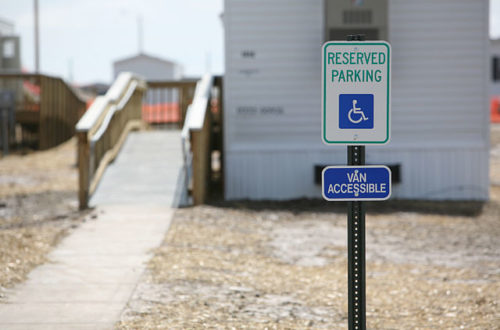Covering Your Bases When Taking On Property-Based Business

Learn how to prepare for the responsibilities of owning and running a property-based business. Know what to expect when it comes to required maintenance, finances, and unexpected accidents.
Many aspiring entrepreneurs dream of owning a business for years, but they often don’t realize just how much work there is to it. Even if you are prepared to take on a heavier workload than you’re used to, the learning curve can be even sharper than you might expect.
Don’t worry. Even if you’re a total beginner, you can learn how to cover your bases when taking on a property-based business. Roll up your sleeves — we’re about to get started:
Understanding the Different Types of Business Property
There are a few different types of business property. Knowing the different types of business property will also help you figure out tax deductions. Familiarize yourself with these terms so you know what’s being referred to in conversations and legal documents:
- Real Property: This includes the land, buildings, and anything else affixed to the property. Equipment is not included in real property because it can be removed from the land.
- Personal Property: Non-affixed property, such as furniture, equipment, and vehicles.
- Listed Property: Business-owned personal property that is monitored by the IRS. For example, a personal vehicle that’s used for business purposes or vice versa.
All business property is reflected on a business’ balance sheet. Real property is usually listed first, followed by personal property. Real property is not subject to depreciation, but personal property is. It’s important to keep great records regarding business property for tax purposes. It’s possible that you’ll get a tax incentive for business property, such as accelerated depreciation. That means you can claim higher deductions on the property for more than just the year of purchase.
When it comes to personal property, make sure to keep track of business expenses. The IRS may need proof that certain property, such as vehicles, are being used for the business and not for personal purposes.
Commercial Property Responsibilities
Managing a commercial property comes with a lot of responsibilities. If you’ve managed a business in the past, some of these responsibilities may be familiar to you. However, if you’ve never owned a business or you’re changing industries, you’ll need to get up to speed. Here are just a few responsibilities to stay on top of:
- ADA compliance — for example, new swimming pools must have a way for a person with disabilities to access it
- Building inspections
- Collecting rent payments
- High performance during energy audits
- Upgrading parking lots
There are also basic maintenance issues to stay on top of. These don’t have a specific time frame. You’ll have to be regularly checking the property to make sure it’s all handled. Even one instance of a slippery floor or icy sidewalk could result in a big problem for the business owner. Here are some steps you should complete as soon as possible:
- Clean up debris and spills ASAP (which also has to do with the staff you’ve hired)
- Ensure floor surfaces are not slippery or overly worn down
- Light stairwells and walkways so there’s enough visibility
- Place anti-slip materials under mats and rugs
- Remove snow and ice from walkways
- Repair broken steps and railings
- Repair water leaks and water damage
- Secure electrical cords so they don’t get in the way where people walk
- Warn visitors about steps or ramps
If you don’t want to handle these responsibilities on your own, you can hire a property manager. As your business grows, you can hire an entire property management team.
3 Accounting Basics
There are so many accounting considerations when taking on a property-based business. Working with a professional will help you keep everything organized and handled. Here are just three basic accounting tips to think about:
- Hire an accountant: Your accountant will of course manage your business’ finances. They have many more skills than that, though. They’ll also explain any financial data that you don’t understand. Most importantly, they’ll ensure you’re compliant with local, state and federal laws. Start by hiring a single accountant. As your business grows, you can employ an entire accounting team, if needed.
- Reduce the chance of late payments: Your business will only be able to function and succeed if you’re paid on time. If you don’t have reliable cash flow, it’ll be difficult to pay for the necessities, like rent, marketing and employees. Invoicing tactics like requiring a deposit and having a short time period to make payments, like NET 15, may help. Also, consider offering incentives for customers or clients who pay the full amount upfront.
- Keep your finances private: This is especially important if you’re renting commercial space. According to Caton Commercial, “Landlords don’t mind taking a piece of your proverbial pie, if you share it. To make sure they don’t try to do that in the form of higher rent, be quiet about your successes.”
Accounting is possibly the most important part of your business. By protecting what you have and ensuring cash flow, you may see profits sooner rather than later. A professional will also help everything run as smoothly as possible.
Property-Based Businesses and Taxes
You can’t talk about business finances without considering taxes. There are four different types of business entities to choose from:
- Sole proprietorship
- Partnership
- Limited liability corporation (LLC)
- Corporation
Each type handles your business, personal assets, and taxes its own way. It’s best to hire a professional who can walk you through your options and help you choose the right one. You probably won’t want to choose a sole proprietorship — your personal finances and property will be completely exposed if there’s a problem.
You’ll have to pay taxes on your commercial property, including the buildings and the land. This is similar to how homeowners pay taxes on their homes. The taxes you pay will be based on the assessed value of your buildings and land. The local entities in your town, city, or county will determine how much tax you pay.
Accidents on Your Commercial Property
Even the most reputable businesses can have guests who report accidents. For example, at a 5-star hotel in Turkey, a changing table collapsed. The accident resulted in a head injury for an 18-month-old.
The more amenities a business has, the more chance there is of an accident. For example, travel industry businesses, like hotels, often have the following:
- Bars and restaurants
- Elevators
- Gyms or workout areas
- Pools
- Spas
- Transportation services
- Water parks
Swimming pools and hot tubs are particularly dangerous. Slips, falls or injuries from chemicals are all possible. Elevators are also prone to problems. The business owner has to make sure elevators are maintained, inspected and repaired. As mentioned above, these amenities also have to comply with ADA regulations. While some older buildings may not have to comply, new builds and newly renovated structures often do.
The nuances of premise liability claims can differ across jurisdictions. In Chicago, as with many other areas, individuals can file personal injury claims if they’ve been injured while on your property. If the owner of the commercial property is found negligent, the injured party will receive compensation. You could end up paying for their medical bills, permanent injuries or disabilities, lost income, and pain and suffering. To prevent this, make sure that you follow all rules and regulations for updating and maintaining your property.
Conclusion
Deciding to take on a property-based business is a huge decision. There’s so much to think about and decide from the very beginning. Your first step is going to be finding a suitable commercial property. It’s best if you can hire a commercial real estate broker. They’ll help find the right property and negotiate terms on your behalf. From there, you can hire an accountant and a property manager to keep the process flowing smoothly. Once you’ve taken these steps, your path forward will be substantially easier to navigate.
Would you like to receive similar articles by email?





